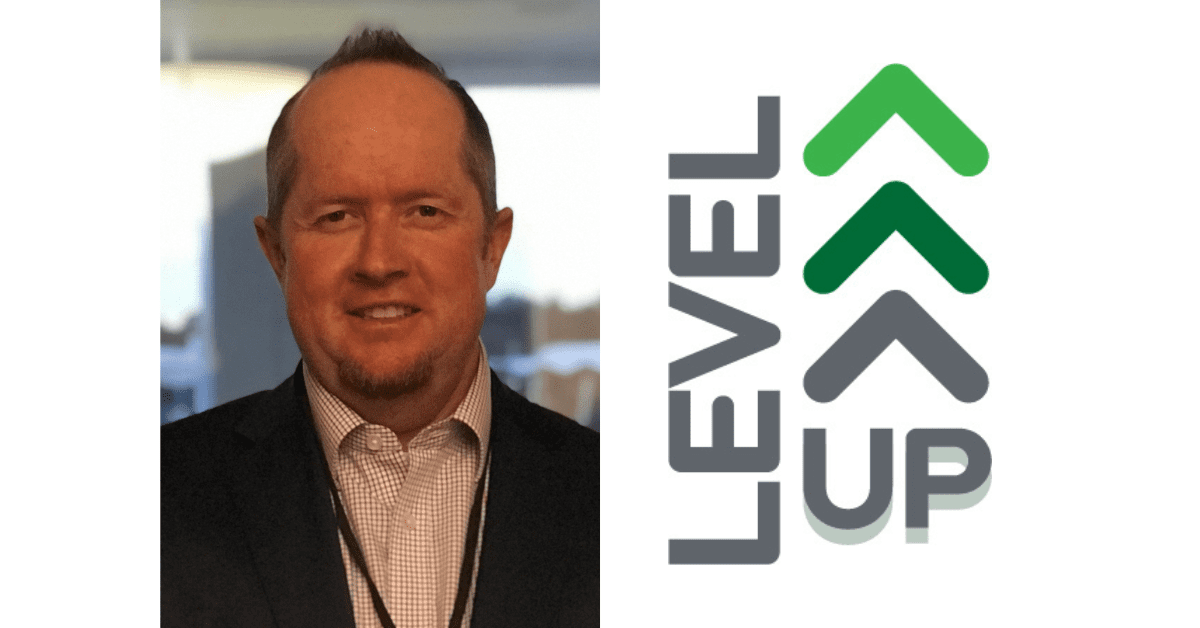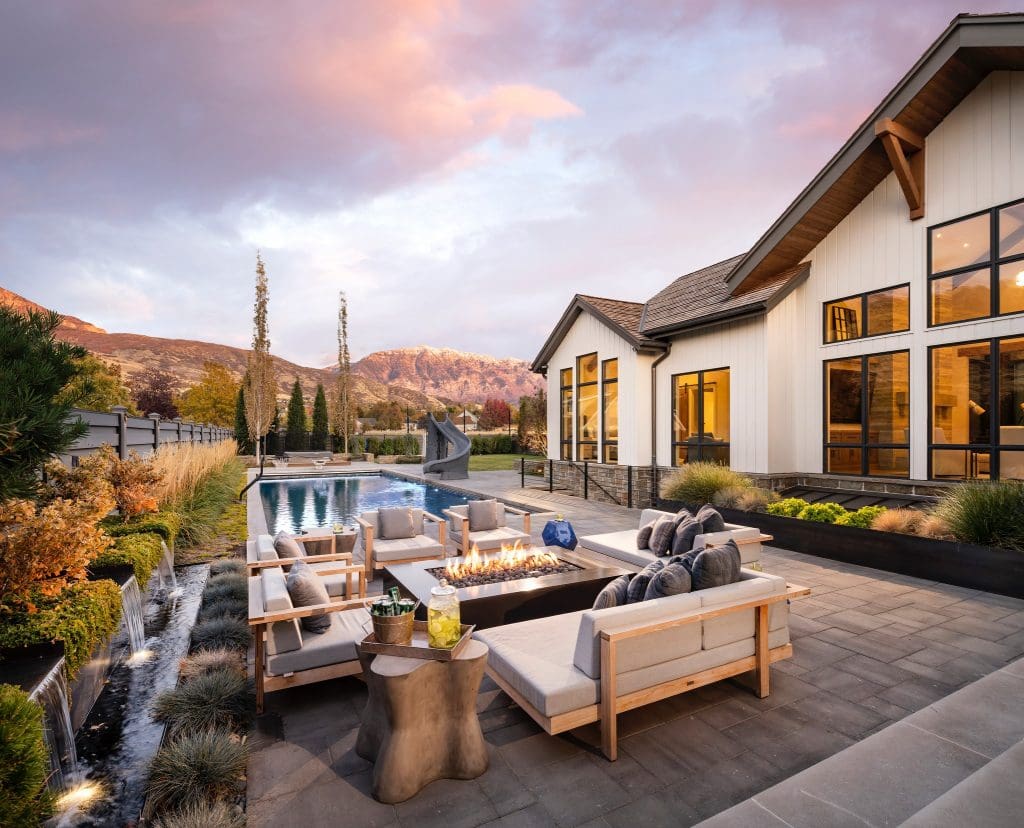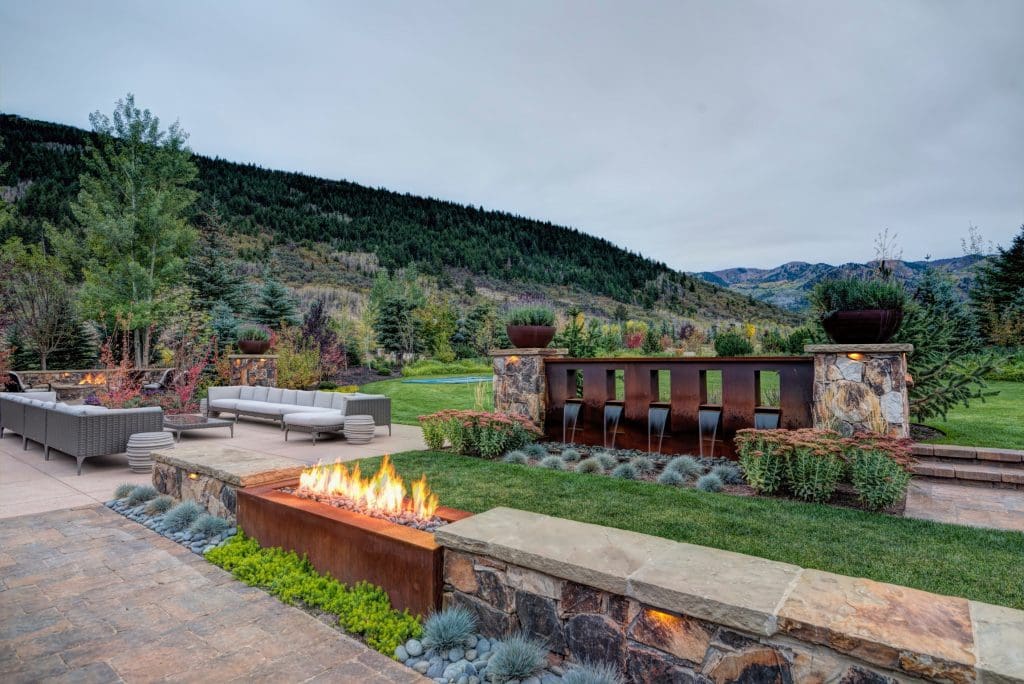
Our Level Up series shares the strategies that help landscape and lawn care companies get to the next level.
It only took Curtis Atkinson one semester in college to know he wanted to start his own company. He had been working for another landscape company since high school, mowing lawns and working his way up in the company. At age 24, he started Sunline Landscapes, based in Draper, Utah.
“I just fell in love with the green industry and the landscaping,” Atkinson says. “I always loved equipment and have always been a creative type.”

His company serves high-end residential clients offering luxury design/build services and property care. He says he gravitated toward high-end residential work due to his artistic nature.
The company finished 2022 at $13.5 million in annual revenue. Atkinson says they have an ideal company size, but it changes every year.
“Years ago, I would have never thought that we would be where we’re at today,” he says. “But honestly, it’s not about a size or a dollar amount we’re trying to hit. I just love the growing aspect because it’s creating opportunities for our team.”
Keys to Success
Atkinson says the company has been able to grow through their relationships, integrity and by going above and beyond for clients.
“We have our own in-house designers, but we also have really good relationships with local landscape architects as well as some renowned landscape architects in the industry from back east that are doing a lot more work in this area,” Atkinson says. “Everything’s built around relationships. My whole company is built around relationships.”

He says they are focused on taking care of their clients as much as possible and in some cases, they have landscaped three or four homes for customers as they’ve moved around. Sunline is also still caring for properties they installed 15 years ago. Atkinson nurtures his relationships by visiting during maintenance contract renewals and talking with clients.
Atkinson says being accountable for who they are and what they do also helps their relationships.
“You learn from your mistakes,” Atkinson says. “You learn from when things didn’t go well, and by just owning those strengthens that trust in relationships.”
Sunline goes above and beyond for their clients by having a dedicated account manager available to answer any questions or concerns. Atkinson says they try to limit each account manager to 20 clients so that they can provide the necessary care and attention.
He says joining a peer group in 2017 has also been beneficial as he can mingle with other contractors across the country, share their challenges, and learn from one another.
“When you’re growing a company, there’s a lot of uncharted territory,” Atkinson says. “You’re just blazing through it.”
Atkinson says being an NALP member has helped as well as being able to access training and certifications. He also enjoys taking his team members to various NALP events where they can see how different companies operate.
“I’m connected with and talking with a lot of different members,” Atkinson says. “A big part of where we are today is because it started with joining a peer group and then being exposed to NALP a little bit more. Seeing what is actually out there has really transformed how we do business and what we’re doing today.”
Maintaining Quality While Growing
Sunline has experienced strong growth years and then plateau years as they built out the necessary structures and positions. Atkinson says they typically grow around 15 to 20 percent now. He says the last couple of years have been hard for their business, even harder than the recession, due to labor and material challenges.

“Back then, you didn’t have those challenges,” Atkinson says. “You just had the find work. And now, there’s plenty of work. It’s more finding team members, the right team members, and then fulfilling that work and fulfilling it at a high-quality level that you want to put your brand and stamp on.”
He says it’s hard to build a reliable team because you can’t just put bodies on a job.
“I know a lot of people were at that point where they were just hiring anyone who came off the street,” Atkinson says. “Well, in our market, in the high-end market, I can’t do that. We have to be very specific and we’re trying to find the right team member. So that’s been challenging.”
Over recent years, their market has seen an influx of clients from a number of locations as tech businesses relocate to Salt Lake City and others move from Connecticut and New York after falling in love with the area on skiing trips.
“A lot of people moving here are building new homes, so it’s great for us,” Atkinson says. “You get up into the Park City market, which we have quite a bit of work in that area, are secondary homes, a lot more vacation homes.”

During the pandemic, their maintenance and enhancement work grew as more people were home and wanted to tweak and change things on their property.
Atkinson says their maintenance division has evolved over the years, as he has sold it several times in the past. This time they are approaching it differently with more of a garden management, white-glove concierge type service where they handle everything outside the house. He says they want clients to call them as their go-to person. He says 85 percent of their maintenance accounts come from properties they installed.
He says since 70 percent of their revenue is from install work, they’d like to grow their maintenance department. This upcoming season Sunline is also working to maintain their quality levels and stay in front of their clients as the economy starts to change.
“Dollars are a byproduct of quality service, quality installs, and relationships,” Atkinson says. “The revenue side is great, but it also funds our growth with our team.”
Recruiting and Retaining Employees
Sunline has around 100 employees on their team during the peak season and 70 during the off-season. The company also uses the H-2B program to bring in 15 seasonal workers. Atkinson says they’ve been bringing the same H-2B workers for the past three to four years.
He says they are awesome people and several of them are crew leaders. Currently, Sunline is sponsoring them through the green card program. 13 out of their 15 H-2B workers will get their green cards this year and not have to return home.
“H-2B is a great program, but it is a lottery, so you just don’t know,” Atkinson says. “I got people in my peer groups that have 40-50 visas, and that just gives me heartburn and anxiety.”
Atkinson says their best method of recruiting new field workers is through their own team. He says their employees will not bring on a new hire they don’t think is a good fit for the team. The company also offers a recruiting bonus that is spread throughout the year. The team member and the new hire both get paid a bonus at the 30-day, 90-day, six-month and one-year mark.
For management positions, Sunline has worked with some green industry recruiters. He says LinkedIn is an awesome resource as the green industry has a strong presence there. They’re also connected with a lot of the local schools and they offer internships. They bring on three or four interns a year from places like BYU and BYU Idaho, which have strong horticulture programs.
“We have a three-interview process,” Atkinson says. “Always have to have three interviews from three different team members within our team just to make sure are they going to be a good fit and hire based on our core values and are they going to be an ideal team member.”
Atkinson says while they have benefits like health insurance and 401(k) it is their culture that retains their people. They host monthly breakfasts and other team events throughout the year. He says they also conduct midseason reviews to check in with employees to see how they want to grow.

“We truly care about our team and we want them to progress and grow,” Atkinson says. “When you have entry-level people coming in who are now in management, that makes me feel really good about our team and we’re coaching and training future leaders.”
The company also reads personal growth books as a staff, like The Culture Code: The Secrets of Highly Successful Groups, Customers for Life: How to Turn That One-Time Buyer Into a Lifetime Customer and The Ideal Team Player: How to Recognize and Cultivate The Three Essential Virtues.
“We discuss as a team and we read a chapter and then we talk about them,” Atkinson says. “It’s an honor code too. You can tell if someone’s reading it or not, but it’s up to you. If you don’t want to participate, that’s fine. I’m not asking you to, but here are some books that are recommended and we’re going to read this one as a team.”
As the company grows, Atkinson says the best way to keep your culture strong is to check in with your team regularly because you don’t know what might be festering if you’re not communicating.
“I love getting feedback,” Atkinson says. “We ask for feedback from not only our clients but we ask for feedback from our team. It’s private and they don’t have to write their name on it. We use ‘start, stop, keep,’ which is something similar to what we use in our peer group. You ask them, what should we start doing? What should we stop doing and what should we keep doing? You get some pretty good feedback from entry-level field guys all the way up through management. All feedback is good feedback.”
Atkinson says the key is making sure they do something with that feedback because they don’t want their team members to think they aren’t listening to what they have to say.
Click here to read more Level Up stories.

